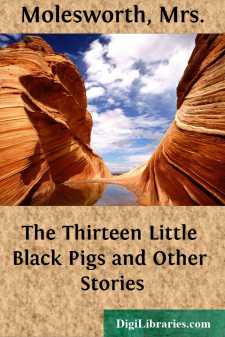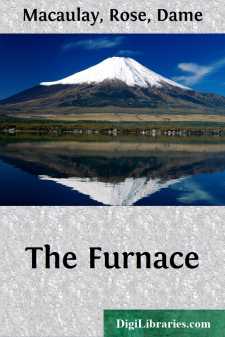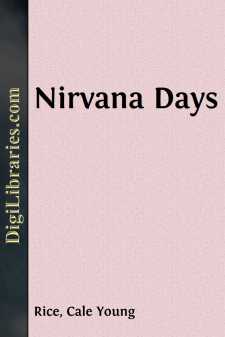Categories
- Antiques & Collectibles 13
- Architecture 36
- Art 48
- Bibles 22
- Biography & Autobiography 813
- Body, Mind & Spirit 142
- Business & Economics 28
- Children's Books 17
- Children's Fiction 14
- Computers 4
- Cooking 94
- Crafts & Hobbies 4
- Drama 346
- Education 46
- Family & Relationships 57
- Fiction 11829
- Games 19
- Gardening 17
- Health & Fitness 34
- History 1377
- House & Home 1
- Humor 147
- Juvenile Fiction 1873
- Juvenile Nonfiction 202
- Language Arts & Disciplines 88
- Law 16
- Literary Collections 686
- Literary Criticism 179
- Mathematics 13
- Medical 41
- Music 40
- Nature 179
- Non-Classifiable 1768
- Performing Arts 7
- Periodicals 1453
- Philosophy 64
- Photography 2
- Poetry 896
- Political Science 203
- Psychology 42
- Reference 154
- Religion 513
- Science 126
- Self-Help 84
- Social Science 81
- Sports & Recreation 34
- Study Aids 3
- Technology & Engineering 59
- Transportation 23
- Travel 463
- True Crime 29
Sort by:
by:
Mrs. Molesworth
CHAPTER. I The house stood on rising ground, and the nursery was at the top of the house—except of course for the attics above—so there was a good view from the two large windows. This was a great comfort to the children during the weeks they were busy getting better from a long, very long, illness, or illnesses. For they had been so unwise as to get measles, and scarlet fever, and something...
more...
by:
Various
A STORY WITH A POINT. (With Mr. Punch's apologies for not having sent it on to "The Spectator.") Geoffrey has an Irish terrier that he swears by. I don't mean by this that he invokes it when he becomes portentous, but he is always annoying me with tales, usually untruthful, of the wonderful things this dog has done. Now I have a pointer, Leopold, who really is a marvellous animal, and...
more...
THE CATASTROPHE. IT happened unfortunately that the mission to ——— was indispensable. The slender accommodation of the tower forbade Gerald the use of his customary attendants, and the neighbouring villagers were too few in number, and too ill provided with weapons, to encounter men cradled in the very lap of danger; moreover, it was requisite, above all things, that no rumour or suspicion of our...
more...
by:
Various
CHAPTER V.THE CHATEAU AFTER THE LOSS OF THE BABY. s the baron had conjectured, the housemaid whom he had called out of the nursery to look for Léon's cane, on finding her master had gone without it, did not hurry back, but stopped talking to some of the other servants for perhaps a quarter of an hour, when she returned to the nursery, and to her amazement found the baby was gone. She was not...
more...
by:
Rose Macaulay
YOUTH IN THE CITY'Val più aver amici in piazzaChe denari nella cassa.' Proverb. Royalty was arriving in the harbour in a steam-yacht. It had, that is, already arrived in the harbour; it was now disembarking on the pier. It was an interesting event. An edified crowd watched it; representatives of the Press jotted down their impressions; some took photographs. A few drew pictures instead. The...
more...
by:
William Ashman
It was a new time and a vast new war of complete and awful annihilation. Yet, some things never change, and, as in ancient times, Ulysses walked again—brave and unconquerable—and again, the sirens wove their deadly spell with a smile and a song. They came like monsters, rather than men, into the vast ruin of what had once been a great city. They walked carefully, side by side, speaking to each...
more...
CHAPTER I A shelf full of books belonging to the American children of colonial times and of the early days of the Republic presents a strangely unfamiliar and curious appearance. If chronologically placed, the earliest coverless chap-books are hardly noticeable next to their immediate successors with wooden sides; and these, in turn, are dominated by the gilt, silver, and many colored bindings of...
more...
I It is one of Johnny Chipman's parties at the Harlequin Club, and as usual the people the other people have been asked to meet are late and as usual Johnny is looking hesitatingly around at those already collected with the nervous kindliness of an absent-minded menagerie-trainer who is trying to make a happy family out of a wombat, a porcupine, and two small Scotch terriers because they are all...
more...
by:
Cale Young Rice
INVOCATION (From a High Cliff)Sweep unrestOut of my blood,Winds of the sea! Sweep the fogOut of my brainFor I am oneWho has told Life he will be free.Who will not doubt of work that's done,Who will not fear the work to do.Who will hold peaks PrometheanBetter than all Jove's honey-dew.Who when the Vulture tears his breastWill smile into the Terror's Eyes.Who for the World has this...
more...
THE HERO I Colonel Parsons sat by the window in the dining-room to catch the last glimmer of the fading day, looking through his Standard to make sure that he had overlooked no part of it. Finally, with a little sigh, he folded it up, and taking off his spectacles, put them in their case. "Have you finished the paper?" asked his wife "Yes, I think I've read it all. There's nothing...
more...











